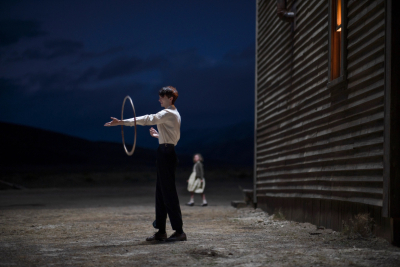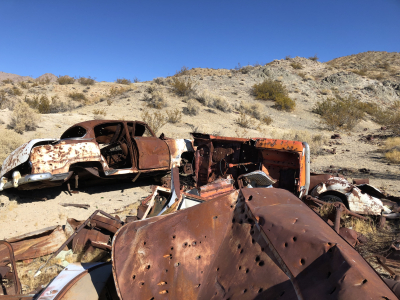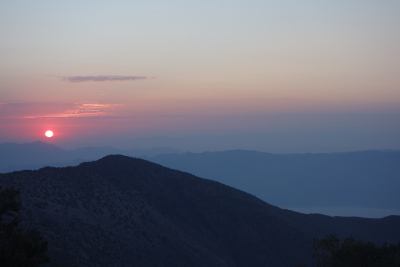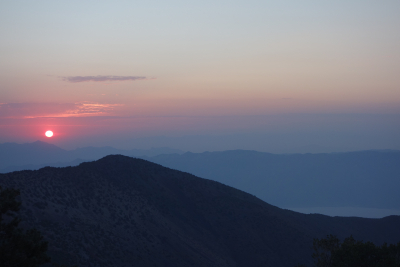Alex Ross's Blog, page 46
December 19, 2021
Jonny Greenwood interview
December 9, 2021
Apex 2021
At the New Yorker website may be found my list of Notable Performances and Recordings of 2021.
Some notable music books of 2021: Kira Thurman's Singing Like Germans: Black Musicians in the Land of Bach, Beethoven, and Brahms (Cornell UP), William Robin's Industry: Bang on a Can and New Music in the Marketplace (Oxford UP), Paul Griffiths's Mr. Beethoven (New York Review Books), Daphne A. Brooks, Liner Notes for the Revolution: The Intellectual Life of Black Feminist Sound (Harvard UP), Kelefa Sanneh's Major Labels: A History of Popular Music in Seven Genres (Penguin), Joseph L. Clarke's Echo's Chambers: Architecture and the Idea of Acoustic Space (University of Pittsburgh Press), Micaela Baranello's The Operetta Empire: Music Theater in Early Twentieth-Century Vienna (University of California Press), Matthew Aucoin's The Impossible Art: Adventures in Opera (FSG), Humphrey Burton's In My Own Time: An Autobiography (Boydell), and Emily Zazulia's Where Sight Meets Sound: The Poetics of Late-Medieval Music Writing (Oxford UP).
Outside of music, I read with great enjoyment Patrick Keefe's Empire of Pain: The Secret History of the Sackler Dynasty, Liz Brown's Twilight Man: Love and Ruin in the Shadows of Hollywood and the Clark Empire, Sarah Schulman's Let the Record Show: A Political History of ACT UP New York, 1987-1993, Elizabeth Kolbert's Under a White Sky: The Nature of the Future, Louis Menand's The Free World: Art and Thought in the Cold War, Rosecrans Baldwin's Everything Now: Lessons from the City-State of Los Angeles, Mark Harris's Mike Nichols: A Life, Herfried Münkler's Marx, Wagner Nietzsche: Welt im Umbruch, Melissa Homestead's The Only Wonderful Things: The Creative Partnership of Willa Cather and Edith Lewis, and George Prochnik's Heinrich Heine: Writing the Revolution.
December 8, 2021
Anniversary issue
Above Death Valley, 2016.
I became a New Yorker staff writer twenty-five years ago, when Tina Brown made the inscrutable decision to hire a twenty-eight-year-old person as the magazine’s music critic. I am everlastingly grateful to have been given the opportunity. I thought I’d mark the occasion by choosing, out of the 750 or so pieces I’ve written for The New Yorker, twenty-five articles of which I’m especially fond. A number of them are caught up in personal experiences that are inseparable from the act of writing: moments of discovery, visits to remarkable places, memories of people who are gone. My three favorites, if anyone is wondering, are Death Valley, Luranah Aldridge, and Lorraine Hunt Lieberson. Deep thanks to the hundreds of editors, copy-editors, fact-checkers, proofreaders, photographers, illustrators, make-up producers, web designers, and other New Yorker employees who have improved my work over the years; deepest thanks to David Remnick and Daniel Zalewski.
Schubert, Jan. 27, 1997.
Bob Dylan, May 10, 1999.
Kiki and Herb, May 19, 2003.
Messiaen's Quartet for the End of Time, March 22, 2004.
Leon Fleisher master class, April 19, 2004.
Björk, Aug. 23, 2004.
In memoriam Lorraine Hunt Lieberson, Sept. 25, 2006.
John Luther Adams, May 12, 2008.
Fictional composers, Aug. 24, 2009.
Meredith Monk, Nov. 9, 2009.
Gardiner's Bach cantatas, April 11, 2011.
Ten Bars of Wagner's Ring, April 25, 2011.
The Busoni Piano Concerto, Jan. 9, 2012.
Harry Kessler, April 23, 2012.
Love on the March, Nov. 12, 2012.
Shakespeare, Wagner, Aldridge, July 29, 2013.
Norman Lloyd, Dec. 14, 2015.
Music and violence, July 4, 2016.
Death Valley, Nov. 14, 2016.
Kate Soper, Feb. 27, 2017.
Willa Cather, Oct. 2, 2017.
Street Symphony, Jan. 1, 2018.
Salieri, June 3, 2019.
Bristlecone pines, Jan. 20, 2020.
My mother and Brahms, April 16, 2020.
December 7, 2021
Anniversary
Above Death Valley, 2016.
I became a New Yorker staff writer twenty-five years ago, when Tina Brown made the inscrutable decision to hire a twenty-eight-year-old person as the magazine’s music critic. I am everlastingly grateful to have been given the opportunity. I thought I’d mark the occasion by choosing, out of the 750 or so pieces I’ve written for The New Yorker, twenty-five articles of which I’m especially fond. A number of them are caught up in personal experiences that are inseparable from the act of writing: moments of discovery, visits to unforgettable places, memories of people who are gone. My three favorites, if anyone is wondering, are Death Valley, Luranah Aldridge, and Lorraine Hunt Lieberson. Deep thanks to the hundreds of editors, copy-editors, fact-checkers, proofreaders, photographers, illustrators, make-up producers, web designers, and other New Yorker employees who have improved my work over the years; deepest thanks to David Remnick and Daniel Zalewski.
Schubert, Jan. 27, 1997.
Bob Dylan, May 10, 1999.
Kiki and Herb, May 19, 2003.
Messiaen's Quartet for the End of Time, March 22, 2004.
Leon Fleisher master class, April 19, 2004.
Björk, Aug. 23, 2004.
In memoriam Lorraine Hunt Lieberson, Sept. 25, 2006.
John Luther Adams, May 12, 2008.
Fictional composers, Aug. 24, 2009.
Meredith Monk, Nov. 9, 2009.
Gardiner's Bach cantatas, April 11, 2011.
Ten Bars of Wagner's Ring, April 25, 2011.
The Busoni Piano Concerto, Jan. 9, 2012.
Harry Kessler, April 23, 2012.
Love on the March, Nov. 12, 2012.
Shakespeare, Wagner, Aldridge, July 29, 2013.
Norman Lloyd, Dec. 14, 2015.
Music and violence, July 4, 2016.
Death Valley, Nov. 14, 2016.
Kate Soper, Feb. 27, 2017.
Willa Cather, Oct. 2, 2017.
Street Symphony, Jan. 1, 2018.
Salieri, June 3, 2019.
Bristlecone pines, Jan. 20, 2020.
My mother and Brahms, April 16, 2020.
December 6, 2021
Ash Fure's Hive Rise, Hildur Guðnadóttir
Grinding Bass. The New Yorker, Dec. 13, 2021.
December 1, 2021
For Alvin Lucier
Allan Kozinn has an obituary in the New York Times.
November 28, 2021
Another Bára Gísladóttir moment
November 24, 2021
Musical censorship in Poland
The celebrated Polish composer Paweł Szymański has issued the following statement. The piece that was heard in place of Szymański's it's fine, isn't it? was Arvo Pärt's Fratres. It would be interesting to know what Pärt thinks of this substitution.
I want to inform all who are interested that the program of the concert at the National Philharmonic in Warsaw on 20 November 2021 has been censored (organized as part of the third Eufonie International Festival of Central and Eastern Europe). As a result of these censorial activities, my piece it's fine, isn't it? for flute and orchestra, to be premiered last night, was taken off of the program.
On 12 November 2021, I was contacted (informally, in private conversation) with a request that I remove from the work mentioned above a sound clip to be played from a portable boom box, which forms an integral part of the piece. That clip contains a snippet from a public statement by Jarosław Kaczyński (leader of the ruling political party): "We won't be made to say that white is white and black is black."
I understand this to indicate self-censoring of the work. I have no influence on censoring activities by third parties; however, extracting them with my own hands is certainly no norm for me. On second thought, I accepted my interlocutor's argument that some people involved in performing the piece could feel implicated against their preferences with a politically satirical message, with my piece as the medium. Therefore (and despite the fact that the content of the piece is solely the composer's responsibility), bearing in mind good interpersonal relations, I reached a solution that was a wide-ranging compromise (in particular, a compromise made with myself). I proposed that for the premiere performance (on 20 November 2021), the clip that has been mentioned containing the Kaczyński quote be replaced by another sound clip saying "Text here has been removed by self-censorship."
For days I awaited a reaction to the compromise I proposed; at last, two days before the premiere, I received an e-mail sent from a private mailbox: "Paweł, with the organizers we've made the uncomfortable decision to remove your flute concerto from the program of the concert on 20 November 2021." To my message that "I await precise, formal information as to who specifically has made the decision to cancel the premiere performance of it's fine, isn't it? and what the reason was," I have received no answer.
Several reflections come to mind:
Despite the fact that Poland's constitution assures freedom of expression and forbids preventive censorship (Article 54) and grants freedom of artistic endeavor (Article 73), censorship actually still exists. The decision as to what can be said in public (shown, played, etc.) is made by unspecified, undisclosed parties operating by undefined rules. There are entire volumes written describing such informal censorial activities.
Quotes from Jarosław Kaczyński are also subject to censorship.
Information about applying censorship is also subject to censorship — we remember this too well from the previous era. Censors don't want to be accused of censorship.
As it turns out, even the information about applying self-censorship is subject to censorship. This is implied by the fact that the compromise proposal I've mentioned above was not accepted. When by the very course of nature the only person a maker can accuse of self-censorship is themself.
Censorship activities expand: they now encroach on the field of music.
There's an additional aspect: the affected person in this turmoil is the soloist, Łukasz Długosz, the flute virtuoso who put much work and his talent into preparing the demanding solo part. That he could not present this in front of an audience is only because someone, in a free, democratic country, is scared of the term "self-censorship."
During last night's concert, a voice announcing from the loudspeakers informed the audience that my piece would not be performed and would be replaced by a different one — giving no reason. It's fine, isn't it?
Paweł Szymański, November 21, 2021
(translated by volunteers)
November 23, 2021
Bookshelf
New and recent publications of interest.
Kira Thurman, Singing Like Germans: Black Musicians in the Land of Bach, Beethoven, and Brahms (Cornell UP)
Paul Griffiths, Mr. Beethoven (New York Review Books)
Theodor W. Adorno, The New Music: Kranichstein Lectures, trans. Wieland Hoban (polity)
Matthew Aucoin, The Impossible Art: Adventures in Opera (FSG)
Charles Hiroshi Garrett and Carol J. Oja, eds., Sounding Together: Collaborative Perspectives on U.S. Music in the 21st Century (University of Michigan Press)
Daniel K. L. Chua and Alexander Rehding, Alien Listening: Voyager’s Golden Record and Music from Earth (Zone Books)
November 15, 2021
Alex Ross's Blog
- Alex Ross's profile
- 425 followers








